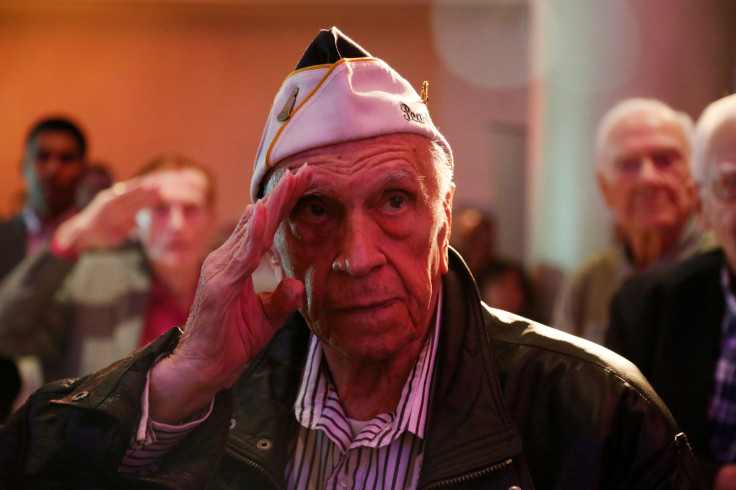Shootings In The US: House Passes Bill Allowing Mentally Ill Veterans To Own Guns

The House passed a bill Thursday barring the Veterans Administration from putting veterans on a no-guns list if they were determined to have mental illnesses. Under current law, the Veterans Administration decides that a veteran is "mentally incompetent" if they need another person to help them with their finances, and reports those names to the FBI, which adds them to the National Instant Criminal Background Check System—the national database gun merchants have to check before they can legally sell a firearm.
The Veterans Second Amendment Protection Act, which passed the House in a 240-175 vote, is now headed to the Senate, where Democratic Senators will surely reintroduce warnings made by both Congressional Democrats and retired military leaders regarding mentally ill people accessing firearms.
Read: Should Immigrant Veterans Be Allowed In US? Deported Marine Begs Trump To Come Back Home
More than 8,000 Americans died from gun violence in 2014. And 80 percent of the U.S. population believed that those suffering from mental illnesses were partially to blame for the troubling amount of gun violence, according to a Gallup poll from Sept. 20, 2013.
"It's going to result in more deaths, more suicides of veterans throughout this nation," retired Navy Capt. Mark Kelly said Thursday in a phone a call with reporters. "It weakens our background-check system and makes our country a less safe place."
The bill’s sponsor, Rep. Phil Roe of Tennessee, said the current practice by the VA violated veterans' rights under the second amendment, and that there was "no relation between" balancing a bank account and handing a firearm. The VA sent 167,815 names to the FBI by Dec. 31, 2016, after beginning to do so in 1998.
Congress passed the Brady Handgun Violence Prevention Act in 1993 to prevent mentally ill people from committing acts of gun violence in response to the failed assassination attempt on former President Ronald Regan. The act, which installed federal background checks on American gun buyers while imposing a five-day waiting period on purchases, was named after Reagan's cabinet member James Brady, who was shot by John Hinckley Jr., during an assassination attempt outside a Washington, D.C., hotel in 1981. Hinkley was later determined to be mentally ill.
The Trump administration released a statement Thursday confirming he would sign the new bill into law if it passed the Senate.
Of the 1.7 million U.S. veterans who served in wars in Iraq and Afghanistan, about 300,000 (or just under 20 percent), were diagnosed with post-traumatic stress disorder or major depression, according to the American Psychological Association.
© Copyright IBTimes 2024. All rights reserved.





















